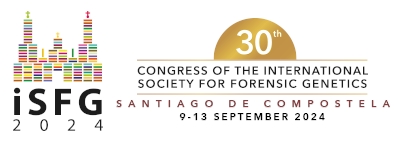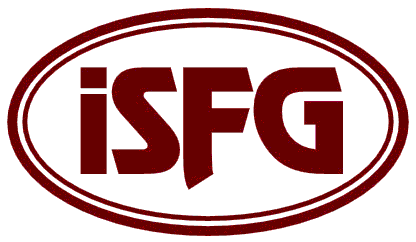Congress Program
11-13 September 2024
11-13 September 2024
Congress Program
Tuesday 10th September
| Tuesday 10th | |
| 16:30-17:30 | Editorial Board Meeting |
| 19:00-20:30 | Opening Ceremony |
| 20:30-21:30 | Welcome Cocktail |
Congress Program
Wednesday 11st September
| Wednesday 11st | |||||||||||||||
| 8:30-10:15 | General Session 1 New Technologies
|
||||||||||||||
| 10:15-11:45 | Break and Poster Session 1 | ||||||||||||||
| 11:45-13:00 | General Session 1: New Technologies
|
||||||||||||||
| 13:00-14:30 Lunch |
|
||||||||||||||
| 14:30-15:45 | General Session 2: New Technologies and Human Identification
|
||||||||||||||
| 15:45-16:45 | Break and Poster Session 2 | ||||||||||||||
| 16:45-17:4515:30 | General Session 2: Human Identification
|
||||||||||||||
| 18:00-18:15 | Break | ||||||||||||||
| 18:15-19:45 | Working Group Meetings More info |
||||||||||||||
| 20:00 | |||||||||||||||
Congress Program
Thursday 12nd September
| Thursday 12th | |||||||||||||||
| 8:30-10:20 | General Session 3: Population Genetics and Forensic DNA Phenotyping
|
||||||||||||||
| 10:20-11:30 | Break and Poster Session 3 | ||||||||||||||
| 11:30-13:00 | General Session 4: Forensic DNA Phenotyping
|
||||||||||||||
| 13:00-14:30 Lunch |
|
||||||||||||||
| 14:30-15:30 | General Session 4: Forensic DNA Phenotyping
|
||||||||||||||
| 15:30-16:00 | Break | ||||||||||||||
| 16:00-17:30 | Special Session: Peter Schneider Memorial
|
||||||||||||||
| 17:30-18:00 | Break | ||||||||||||||
| 18:00-19:30 | General Assembly | ||||||||||||||
| 20:00 | |||||||||||||||
Congress Program
Friday 13rd September
| Friday 13th | |||||||||||||||||
| 8:30-10:30 | General Session 5: Statistics and Interpretation
|
||||||||||||||||
| 10:30-11:30 | Break and Poster Session 4 | ||||||||||||||||
| 11:30-12:45 | General Session 5: Statistics and Interpretation
|
||||||||||||||||
| 12:45-14:30 | Lunch | ||||||||||||||||
| 14:30-15:40 | General Session 6: Genetic Genealogy
|
||||||||||||||||
| 15:40-16:25 | Break | ||||||||||||||||
| 16:25-18:00 | General Session 7: Ethics
Closing Ceremony
|
||||||||||||||||
| 20:30 | Gala Dinner more info |
||||||||||||||||

